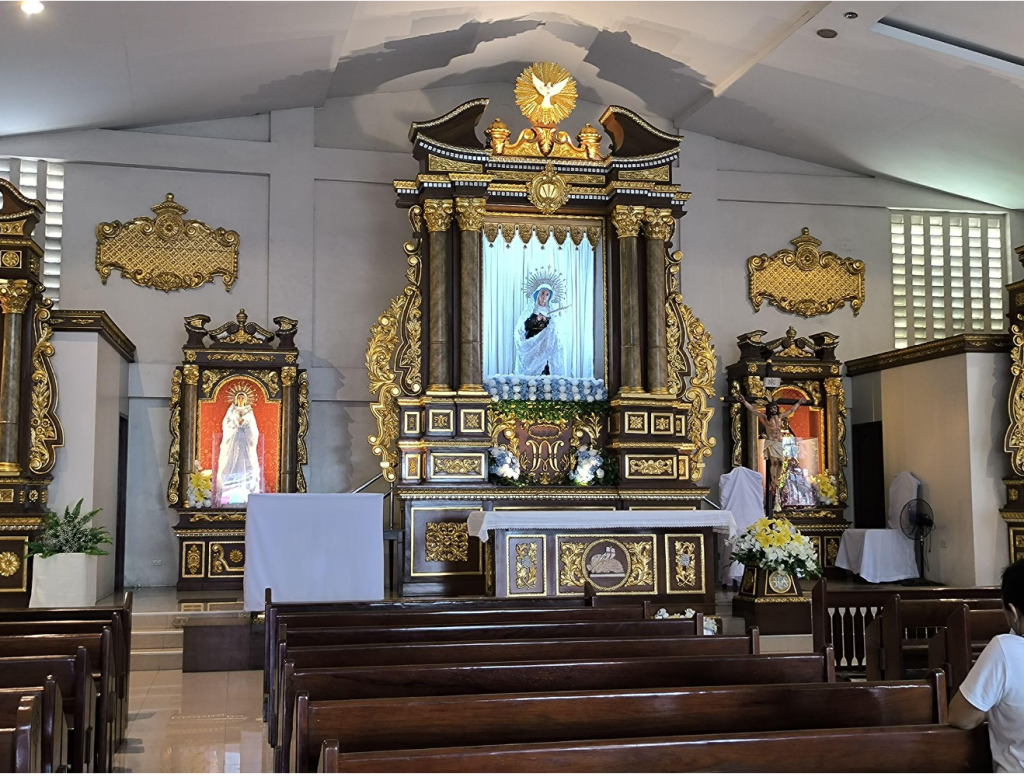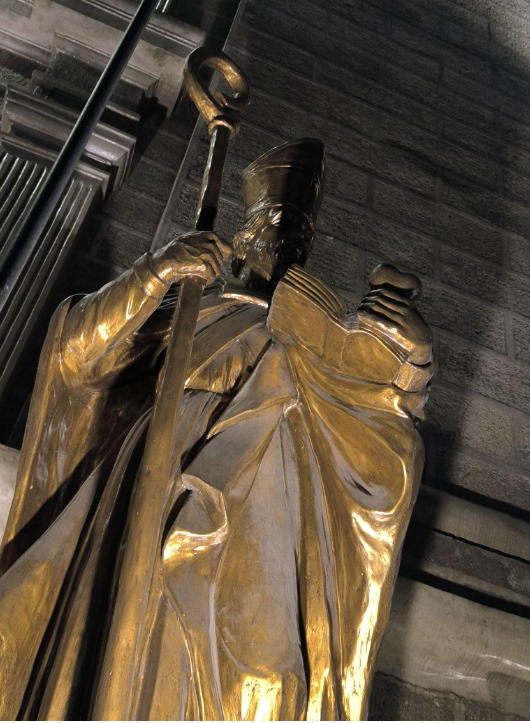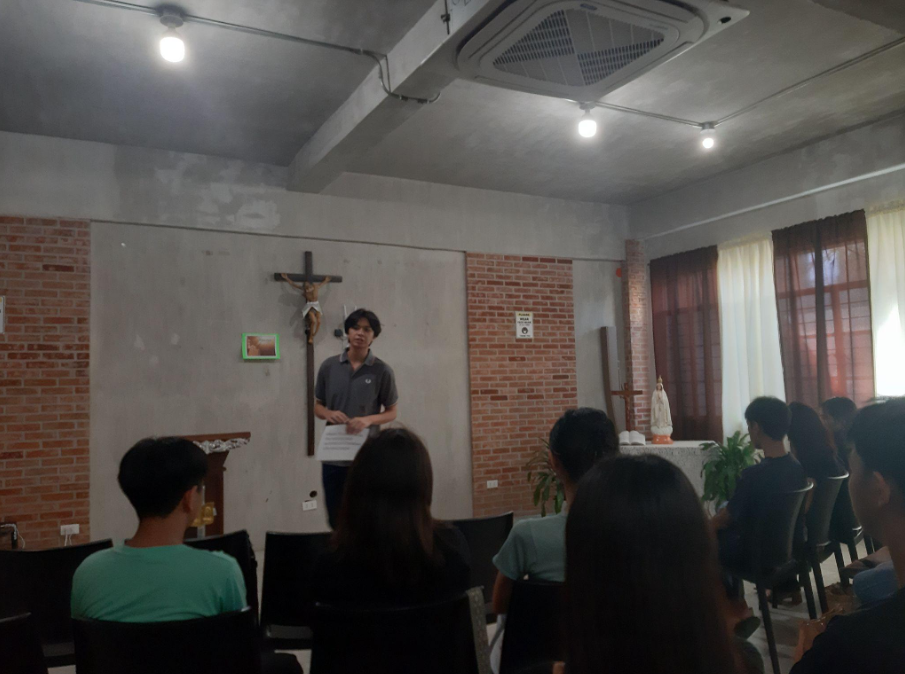
“Happy the man who meditates on wisdom, and reflects on knowledge; Who ponders her ways in his heart, and understands her paths; Who pursues her like a scout, and lies in wait at her entry way.” (Sirach 14:20-22)
Not beating the allegations.
The “mountaineering” accusations towards UP students is the greatest stereotype (you’ll hear it a lot!). Ranking third, in my opinion, is that UP students are atheists (or that by studying in UP one becomes an atheist). The name of the institution alone should raise the eyebrows of highly conservative communities and families. Well, it is not untrue that there are high chances one might change beliefs as they strive along the path of university scholarship. After all, education should teach a critical attitude towards reality. I think it’s neither something we should frown upon nor should it be a subject of anger. Having met many people in the university, each hailing from different backgrounds and espousing different worldviews, all I can say is that such diversity is beautiful (and something we must treasure).
Now, going back to the allegations, if we layer in the fact of “being a UP student” with “being a student of philosophy”, all the more the accusations become stronger. Surely someone who questions and doubts everything is someone who does not adhere to anything religious or superstitious beliefs or faith, right? The history of western philosophy may be a testament to this. The ancient Greek philosophers wished to depart from the mythical explanations of world events and to turn to a more naturalistic and logical understanding of phenomena. But through the same means we can also see that along the timeline, faith and reason become intertwined (as in most medieval philosophical discussions), not as clashing approaches but each supporting another towards the innate human thirst for truth. And it is echoed by contemporary Christian thought, John Paul II says that “[f]aith and reason are like two wings on which the human spirit rises to the contemplation of truth.” (Fides et Ratio, 1998). Allow me to share some of this intertwining in my UP life.

What shape does faith take?
Long before I entered UP, admittedly, my faith was already wavering. (Do mind that I was then still in a very religious institution). Mostly that was due to my early encounters with philosophy, I brought the newly formed curiosity towards approaching religion. So, indeed, I admit philosophy might make you an unbeliever or at least will make you question what seems to be absolute in the religious field. Nothing changed coming into UP; that critical attitude towards unreasonable belief lingers. Although I am critical of it, I also do not have any reason to abandon it, maybe the sense of comfort–from the uncertainty of things–that religion can offer, stayed within me. Coming into UP also surprised me. While it is true that there are a lot of those who are critical of religion, it is also true that UP will not necessarily force you into abandoning what you think is valuable. I am more surprised because I have met people who are more ardent in their faith than anyone I know and some of them are taking philosophy. They are more qualified to write about this senior spotlight topic! With the years I spent studying philosophy under the department and my encounters with people of different faiths, I can say that it helped me realize what form this God-given reason and faith should take. I can say that several philosophy classes helped me realize what I have now. For example, believe it or not, Logic helped me in this aspect. Some beliefs should be consistent with each other (I’ll give an example in a while). Also, Socio-Political philosophy, Philosophy of Law and Ethics became an extension of this inquiry towards faith, truth, and religion. They served as an avenue to check the application of our theories to real life experiences and social structures. For example, should we pattern our actions and rules to what nature presents us or should they be made to best fit our interests? Metaphysics and epistemology check our commonly held beliefs and gauges them with the theoretical and scientific advancements of today’s world. Maybe we can ask, “how well does the ontology of a religion as forwarded by their scriptures fit into what we know so far?”. Finally, the department offers Philosophy of Religion, which applies an analytic approach towards looking at the structure of religion. Touching upon topics such as human behavior and their beliefs, problem of evil, evidence and miracles, and so much more. I have to admit I failed to enlist such an interesting class, however I can tell that it is a good philosophy class to take because of my friends who would speak of Aquinas and William James whenever we touch upon philosophy of religion topics. I never realized back then that I can apply the approaches of those philosophical fields towards my restless inquiry about faith and the divine.

A ladder to ascend or a pit to fall into?
After careful reflection, after four years of philosophy, at least for now, I know what form my attitude towards faith should take (relative to philosophy or reason). I do not need to drop anything. John Paul II might be onto something: that faith and reason go hand and hand towards truth. Philosophy–being a second-order discipline–keeps my belief system in check so that it does not stray from its goals. On the other hand, faith engenders the path, setting out where to walk. But what goal and path? If the goal of faith is to attain the truth hidden behind mysteries, and we know that it was said that “truth will set [us] free” (Jn 8:32), then don’t we have good reasons to believe that faith should be liberating? Hence, when a belief or faith becomes oppressive, let it be anathema. Philosophy is there so that no belief system should ever dispose of human lives again for its self interest. True faith should not favor discrimination in attempts to unify. An ascent towards truth can never be good if it incurs injustice and oppression. There should be consistency in beliefs towards valuing life and preference for government leaders. Faith and philosophy should usher in liberation. In many instances throughout history, we know that the uncritical attitude towards a lot of systems and ideologies end up causing destruction and degradation. There is neither a need to drop faith for philosophy, nor a need to admit to the credo in absurdum. Our pursuit towards understanding the mystery of our reality should not be lazy.
I am wondering how to end this essay and I remember a line from the movie Conclave (2024) directed by Edward Berger, based on the novel of the same name by Robert Harris (2016). I like the way the character viewed the dynamics between faith and doubt. Not all will agree to it, but I think it is worth pondering about. “Certainty is the great enemy of unity. Certainty is the deadly enemy of tolerance. Even Christ was not certain at the end. ‘My God, my God, why have you forsaken me?’ he cried out in his agony at the ninth hour on the cross. Our faith is a living thing precisely because it walks hand-in-hand with doubt. If there was only certainty and no doubt, there would be no mystery. And therefore, no need for faith.” (Ralph Fiennes as Cardinal Lawrence).

